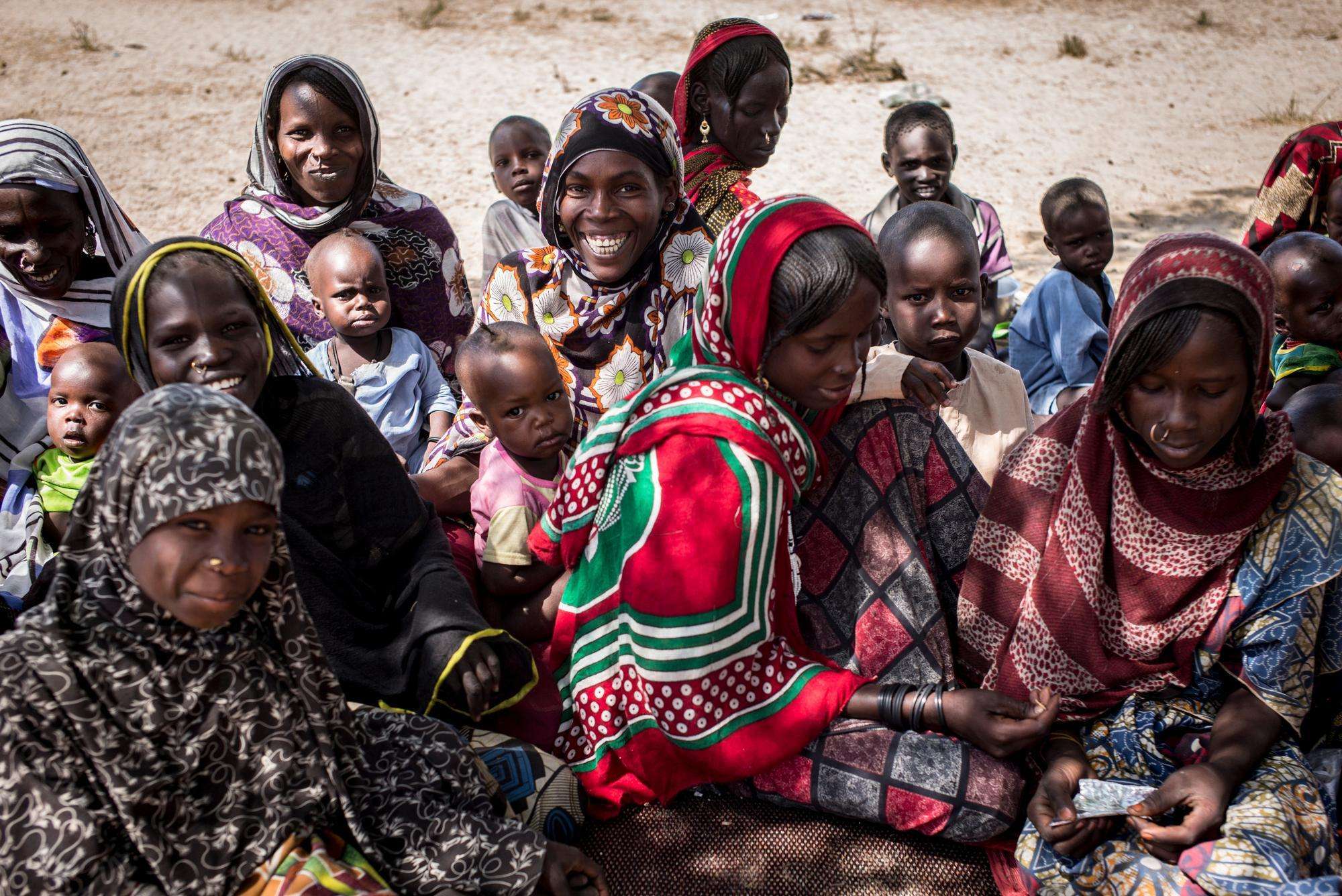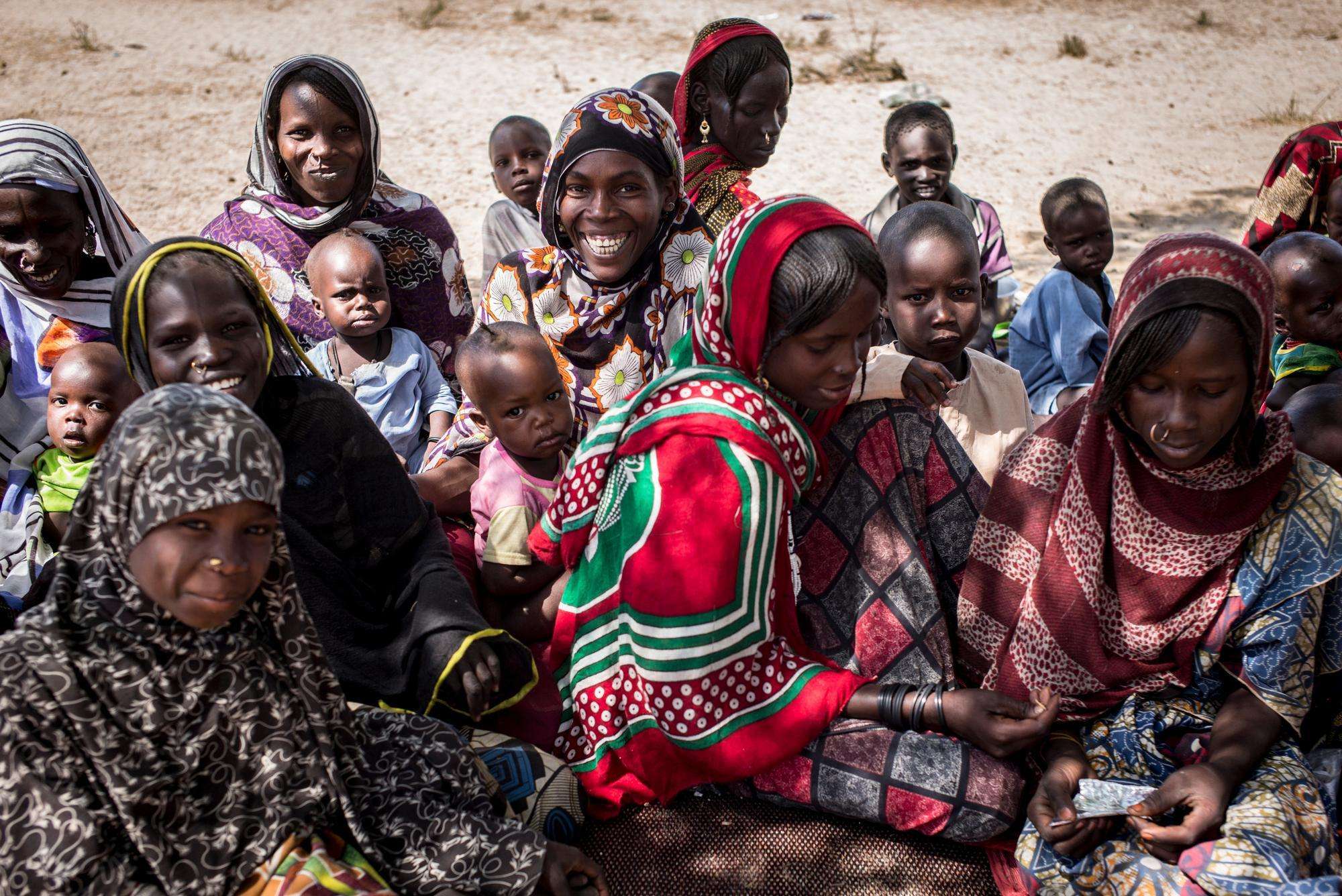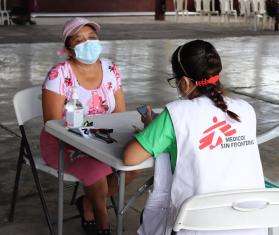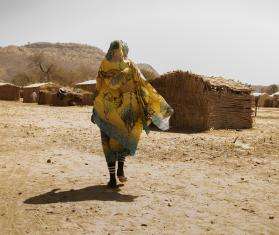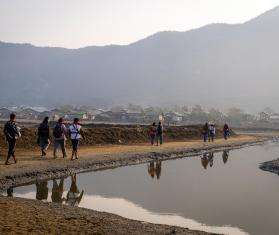Dr. Silas Adamou Moussa, deputy head of mission for Doctors Without Borders/Médecins Sans Frontières (MSF) in Chad, was part of the team that traveled to Mani to assist wounded people following the suicide attacks that took place on Koulfoua Island on December 5. Here, he describes what he saw and what the team did when they reached the island:
"After the attacks, the wounded had been evacuated from the island to a basic health center in Guitté, a small town on the shores of Lake Chad. Many were in serious condition and had received no care during the three hour boat crossing from the island.
Triage was carried out at the health center: wounded people who needed emergency surgery were transferred to N’Djamena, and those with less severe wounds were transferred to Mani, a town near the border with Cameroon.
We left N'Djamena on Sunday afternoon, traveling in a small truck loaded with surgical equipment and medication. We worked Sunday night until early morning to set up the medical and surgical equipment.
Our logistics team set up three tents with ten beds each, and also installed running water and electricity. At around 2 a.m., we were ready to receive the first influx of wounded. They arrived by ambulance from Guitté.
I had never before seen these types of injuries. Men, women and children had their bodies covered in sharp splinters. Pieces of glass, nails and metal scraps were embedded in their faces, their chests, their limbs. Many were disfigured by the lacerations.
READ: MSF TEAMS PROVIDE SUPPORT AFTER DEADLY KOULFOUA ISLAND ATTACKS
I haven’t slept since we got here. The nature of the injuries means we have to spend a lot of time with each patient to remove all of the fragments of glass or metal—it can take several hours to check all parts of the body.
In some cases, amputation is required, so we organize the patient to be transferred to N’Djamena, where the hospitals have more advanced surgical capacity.
I am working with a translator to communicate with the patients. This enables me also to hear their stories about what they experienced. A woman told me today that she had gone to buy fish at the market with her young daughter. Everything went black, ‘as if a veil had covered everything around them,’ she said. She woke up in the hospital, and did not know where her daughter was. The child was seriously injured and had been transferred to N'Djamena; we heard today that she is doing better.
All of the victims are in shock. They are very scared and fearful about what the future holds for them.
I have worked for MSF for seven years, but this is the first time I have treated people injured by such attacks. It shocks me in this situation that the injuries perpetrated are intentional.
I am from northern Cameroon, a region that is also suffering similar attacks. What saddens me is that in addition to poverty, the people living in this region are now also facing violence.
The people here have no way to protect against these attacks and they have nowhere to go. Fear has spread in Mani, the streets are deserted and people are staying at home. Today the hospital is one of the only places where there is activity.”
"I have worked for MSF for seven years, but this is the first time I have treated people injured by such attacks. It shocks me in this situation that the injuries perpetrated are intentional."
Dr. Silas Adamou Moussa
